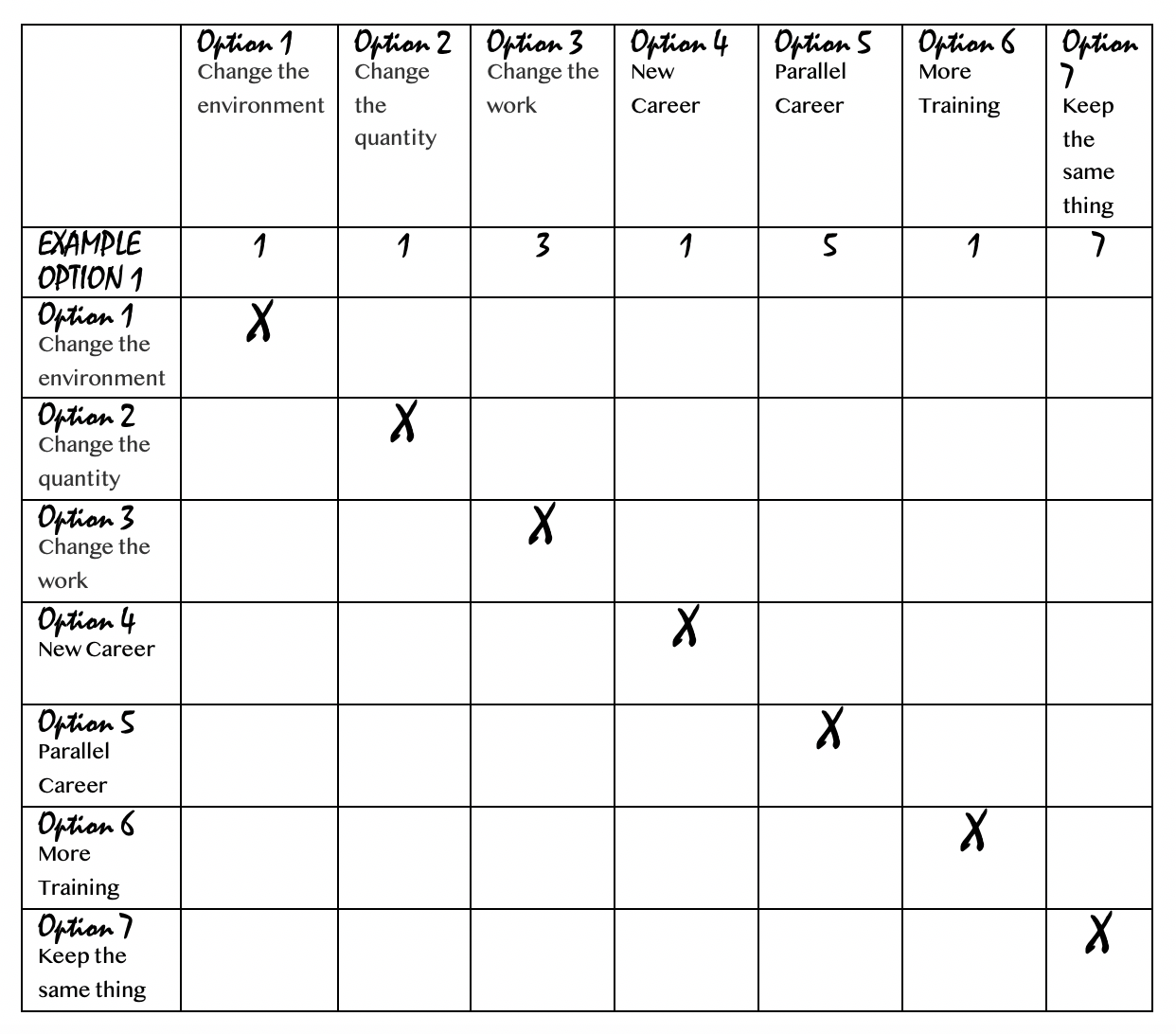Creating a Resume that Stands Out…Regardless of Your Past Experience: TOOL
/Career searching requires tenacity
Creating a Resume that Stands Out…No Matter What Your Past Experience
I could say, like many others. I’ve primarily worked in the non-profit world. I’ve only ever really done donation-based work. I’m 48 years old. What do I have to offer?
When I compare myself to men who didn’t take time off to raise children, or others who didn’t spend time learning language or moving cross-culturally, I feel as though my life, to date, may not have much to show for it.
I’m not typically bothered by these things as I chose this path and loved most of it! However, when applying for a new position, when one’s self esteem is shaky, it is easy to get trapped in the limiting language of vocational success. The familiar voices of condescend sound: What have I done with my life? how much have I earned? what have I done with the time? What have I accomplished? it’s too late to start over now.
When we mine transferable skills, looking at the details of the whole of our experiences, we can begin to see that the common, everyday tasks unique to MY life have mattered. I can see clearer that God has used my life for good. And I still have a lot to offer!
Putting a resume together:
~60 minutes
1. Find a resume template you like. There are many free ones on the web. If you’re skilled with design, create your own or use a free platform like Canva. You can also hire a one-time designer on 99designs.com or fiverr.com.
2. Start with the transferable skills list you created (see “building your transferable skill list for resumes”)
3. List the top 3-4 organizations most relevant to the job you’re seeking in chronological order, most recent first. The most logical way to represent this is to include the name of the organization, location and general role title. Include the years worked, as well.
4. When listing the transferable skills, put them in the most relevant order. Combine skills if they are similar or don’t say something new.
5. On the most looked at area of the page, the right hand side, include a picture, your contact information and any other relevant information such as degrees earned and interests. Keep it brief, but give interesting information that highlights why you are unique and worth consideration for the position you’re seeking.
6. Finally, at the bottom, include a few relevant references. Having a few names of key people who can attest to your hard work, validates and gives credibility to what you’ve listed above, regardless of if they are ever contacted. A former employer, professor, or relevant connection. Be intentional in who you list particular to the job responding to.
You are trying to limit the information to what is most relevant in a field of work you would like to do more of. As well, you’re intent is to keep it concise and to the point. One page is still the norm, but depending on your age, up to 2 is still considered permissible. (The exception to the rule is an expressed request for publications or an added portfolio for artists and designers).
Because we want to err on the side of relevant and concise, recognize you can’t include everything. Consider making 2-3 versions of your resume, targeting different types of work.
Many hesitate if there have been a break in years if you went back to school, had children, or performed tasks that are not as important to the job you’re applying for. Be ready and willing to share what those dates, without apology. Listing other hobbies or certificates gained in the break in years or voluntary positions held in those windows, may serve as explanation enough.
There is no need to list all of your certificates, accolades, or knowledge gained. A website, a linkedIn profile, a biography or a blog are other places to link on your resume and point people to your history of work. Likely they will do the work of discovering who you are in this information age. There is no need to list everything.
Show the diversity of who you are and what you do. Don’t underestimate a simple job. One friend of mine who is an engineer, highlighted that he was a waiter in college. They said they gave him the job because they knew he would have great people and conflict management skills, historically lacking in this field.
Now, step back, reevaluate, don’t be too hard on yourself, ask for feedback, share this fine piece of hard work with others in a similar field. And ultimately be proud of yourself for all that you have done in your life!

























































